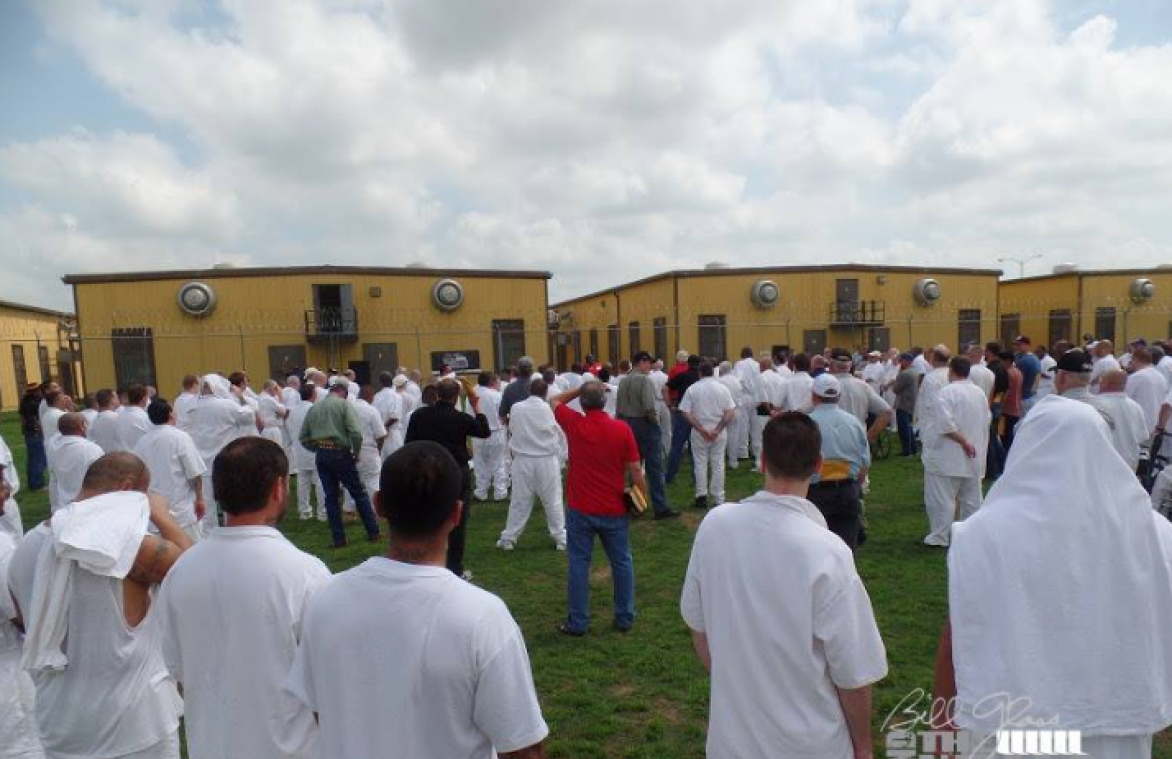A Muslim inmate who alleged that prison officials in Orient, Ohio, forced him to attend a Christian ministry even in prison may proceed with his religious liberty claims, a federal district court judge has ruled.
U.S. District Judge for the Southern District of Ohio Algenon L. Marbley reasoned that the prison officials’ actions may have violated both the Free Exercise Clause and the Establishment Clause of the First Amendment.
Aaron Young, who practices Islam, was housed at the Correctional Reception Center (CRFC) in Orient, Ohio. In July 2015, Young alleges that prison officials forced him to attend an event at CRC featuring Bill Glass Ministries, a Christian organization that proselytizes to non-Christian inmates. Prison officials contended that all inmates needed to attend for safety reasons. However, Young pointed out that not all inmates were forced to attend a February 2015 Black History event at the facility.
Young sued prison officials, alleging that prison officials violated his religious liberty rights under both religion clauses of the First Amendment. Regarding the Free Exercise Clause claim, Young contended that forcing him to attend a Christian event substantially burdened his free-exercise rights to practice Islam and that prison officials lacked a reasonable pedagogical reason for making him attend.
The prison official defendants countered that their actions were justified by safety and security. However, Judge Marbley questioned this in his June 14, 2018, decision in Young v. Chuvalis. He wrote that “it is difficult to conclude that the unsupported statement that the mandatory attendance policy was created for the safety and security of the prison is anything other than a mere fig leaf.”
Judge Marbley also refused to grant the defendant officials summary judgment on the Establishment Clause claim. He analyzed the claim under the Lemon test from the U.S. Supreme Court’s 1971 decision in Lemon v. Kurtzman. That test has several prongs, including:
- that the government has a secular purpose for the regulation or policy;
- that the policy does not directly advance or endorse religion; and
- that it does not constitute excessive entanglement of church and state.
Prison officials contended that they had a secular purpose to provide entertainment to the inmates and were not focused on religious content. However, the warden conceded that the event was “faith-based.” Thus, there is a good argument that the primary purpose of the event was religious, not secular.
Similarly, it appears that there is valid evidence that the event had the purpose of advancing or endorsing religion. “The question is whether the event as a whole, including the requirement of mandatory attendance, would be perceived by a reasonable person as state endorsement of religion,” wrote Judge Marbley.
The judge reasoned that whether the event directly advanced religion could not be decided on summary judgment, as each side presented evidence that the event was either predominately religious or predominately secular. In other words, a jury needs to decide the question.
The prison officials also argued that they should be entitled to qualified immunity – a doctrine that shields government officials from liability unless they violate clearly established constitutional or statutory rights. Judge Marbley rejected the qualified immunity defense, explaining that there is an “overwhelming” body of case law that prohibits prison officials from forcing or coercing inmates to attend religious services of which they are not a member.
In his opinion, Judge Marbley showed remarkable sensitivity to the rights of prisoners, writing: “In other words, the position of the prisoner is one of exceptional vulnerability. The Court must therefore guard their First Amendment rights with exceptional zeal.” If only more federal and state judges harbored similar sentiments, then the rights of prisoners would be treated with more respect.
Prisoners are human beings who do not lose all of their constitutional rights simply because they are behind bars. Judge Marbley’s opinion is a sterling example of a judge caring about constitutional freedoms.
David L. Hudson, Jr. is a First Amendment scholar and the author of Documents Decoded: Freedom of Speech (ABC-CLIO, 2017) and First Amendment: Freedom of Speech (Thomson Reuters, 2012).

